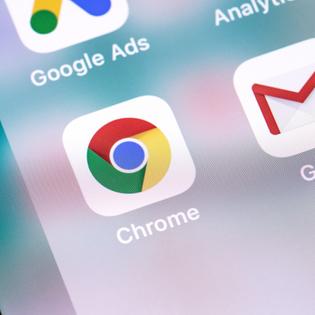Advertiser Disclosure
All About Cookies is an independent, advertising-supported website. Some of the offers that appear on this site are from third-party advertisers from which All About Cookies receives compensation. This compensation may impact how and where products appear on this site (including, for example, the order in which they appear).
All About Cookies does not include all financial or credit offers that might be available to consumers nor do we include all companies or all available products. Information is accurate as of the publishing date and has not been provided or endorsed by the advertiser.
Editorial Policy
The All About Cookies editorial team strives to provide accurate, in-depth information and reviews to help you, our reader, make online privacy decisions with confidence. Here's what you can expect from us:
- All About Cookies makes money when you click the links on our site to some of the products and offers that we mention. These partnerships do not influence our opinions or recommendations. Read more about how we make money.
- Partners are not able to review or request changes to our content except for compliance reasons.
- We aim to make sure everything on our site is up-to-date and accurate as of the publishing date, but we cannot guarantee we haven't missed something. It's your responsibility to double-check all information before making any decision. If you spot something that looks wrong, please let us know.
From memes about having a personalized FBI agent monitoring your every move to the unsettlingly accurate targeted ads you see, privacy in our increasingly online world has become a major talking point. But your online privacy is more than a meme — it’s a legitimate concern, especially in the wake of data breaches and revelations of mishandled data from top tech companies and smart devices like Alexa.
You most likely leave your smartphone turned on and within arm’s reach when you’re at home or going out, but don’t let the prevalence of data monitoring deter you from taking steps to protect your privacy. This article will cover several concrete steps you can take to start protecting your data, such as changing settings and using anti-malware software.
Is my phone always listening?
Android phones
iPhones
Is it legal for my phone to listen to me?
How to stop your Android phone from listening to you
How to turn off Google Assistant on Google Maps and Android Auto
How to stop your Apple iPhone from listening to you
7 cell phone privacy tips
FAQs
Bottom line
Why is my phone listening to me?
So, your phone is listening to you. But why? To what end? The short answer is that your phone and plan carrier use voice data, which can manifest in several forms — from voice assistant apps like Siri and Google Assistant to personalized advertisements.
They also listen to you for marketing purposes. Just like how Google and other search engines keep track of your search and browsing history to make sure the online ads you see are relevant to your particular interests, your voice data is used in the same way.
It’s simply another means to target relevant advertisements to you, which in turn helps the advertiser stretch their clients’ dollars as far as they can by avoiding irrelevant ad targeting.
Block all those annoying online ads
Total Adblock is an easy-to-use solution that helps you browse the internet anonymously and ad-free. You can block unwanted ads on YouTube, Facebook, Yahoo, and millions more websites.
It’s easy to set up and provides hands-off ad-blocking without disrupting your web surfing. With a 94/100 score from Adblock Tester, you can’t get much better.
-
Remove ads & trackers on YouTube, Facebook, and most websites
-
Hands-off ad-blocking experience
-
Easy to set up
Is my phone always listening?
This is the next logical question. If it’s legal for your phone to listen to you, then is it doing it every second of every hour that it’s turned on? The short answer is yes, your smartphone is technically always listening. However, the truth is a bit more complicated.
A voice-activated device has to be constantly eavesdropping so that it picks up on “wake words,” or the voice command used to activate their virtual assistant service. These range from “Hey Siri” or “OK, Google” to simply “Alexa” (much to the annoyance of anyone whose name starts with those five letters).
This doesn’t mean that it’s ignoring everything else being said. As mentioned, your smart devices use data of all types to create a “profile” of you as a user and consumer to show you the most relevant ads.
And while there isn’t usually anything nefarious behind this practice (depending on how you view data collection as a whole), it makes sense that you’d still be concerned about it from a privacy standpoint.
Android phones
For Android devices, “wake words” include “OK, Google,” but your phone might be listening for certain other keywords as well. That does not mean that there are audio recordings of everything you say being uploaded to Google. Most of that voice data would have no advertising value. But what you say after those wake words, such as “Who is the President of Mexico” or “How old is Emma Watson,” will be saved the same way a Google search would be.
However, your Android phone can also be accidentally activated and record sensitive conversations or other details from your personal life. You could be having a conversation with a friend about some obscure fun fact. One of you doesn’t believe the other, and says “OK, Google it!” But your virtual assistant can certainly mistake other words or similar-sounding phrases as its wake word, too.
iPhones
Your iPhone is also listening to you. Siri was one of the very first virtual assistants on any smartphone, and it is constantly listening for certain wake words or other keywords. However, Apple goes a bit further than other devices. Your iPhone will randomly select parts of conversations recorded by Siri to determine how they can improve their service.
The iPhone manufacturer also made news in 2019 when it was revealed that contractors with the company were regularly hearing far more than they bargained for. iPhone users would be justified in their concerns after this fact. Though Apple claims that they have cracked down on the accidental collection of sensitive or embarrassing personal data, the technology responsible for it in the first place remains commonplace for all modern mobile devices.
Is it legal for my phone to listen to me?
Not only is your phone listening to you, but it’s 100% legal for phone makers to do so. You might be thinking “I didn’t give my consent!” Well, unfortunately, you almost certainly did.
Any time you accept terms and conditions for a software upgrade or app download, that’s exactly what you’re doing. This is how smartphone manufacturers and app developers collect your data — from audio to browsing to other web activity. Whether that’s totally fair or especially sleazy isn’t the point of this particular article. The fact is it’s legal, and it’s happening.
However, just because your device can listen to you legally doesn’t mean that it can’t listen to you illegally. Just like with any other device connected to the internet, your smartphone can be infected with spyware or malware that can track your activity. That’s why it’s usually a good idea to limit permissions and always read the terms of service before agreeing to them.
How to stop your Android phone from listening to you
Now that you know your phone is listening to you — and that it could be doing so for a variety of reasons — what if you want to create some reasonable digital boundaries? After all, there’s more to life than conveniently relevant ads and information overload on demand.
One of the most important first steps is to remove malware from your devices. You’ll want to start by removing any suspicious apps. For Android devices, take the following steps:
- Go to settings on your Android device and select Apps.
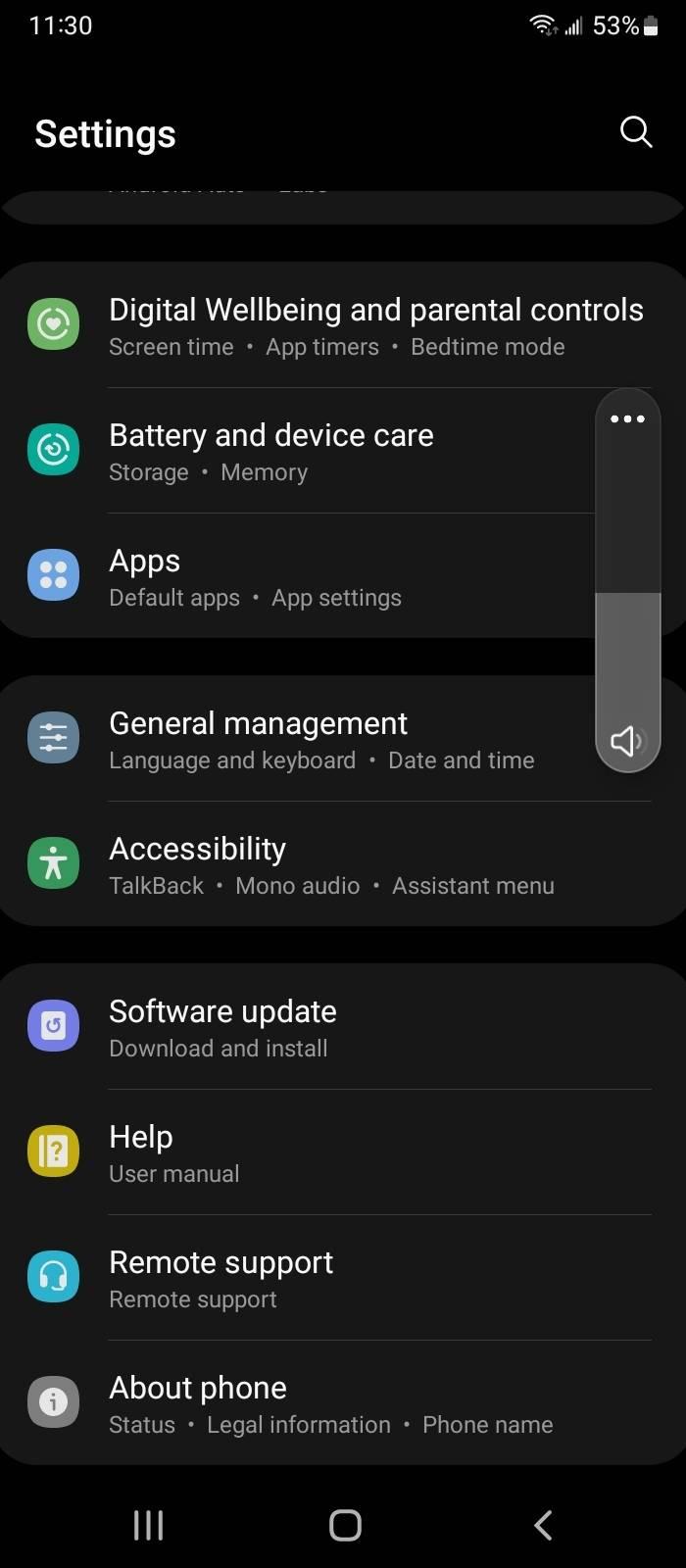
- Select the infected apps and then hit uninstall.
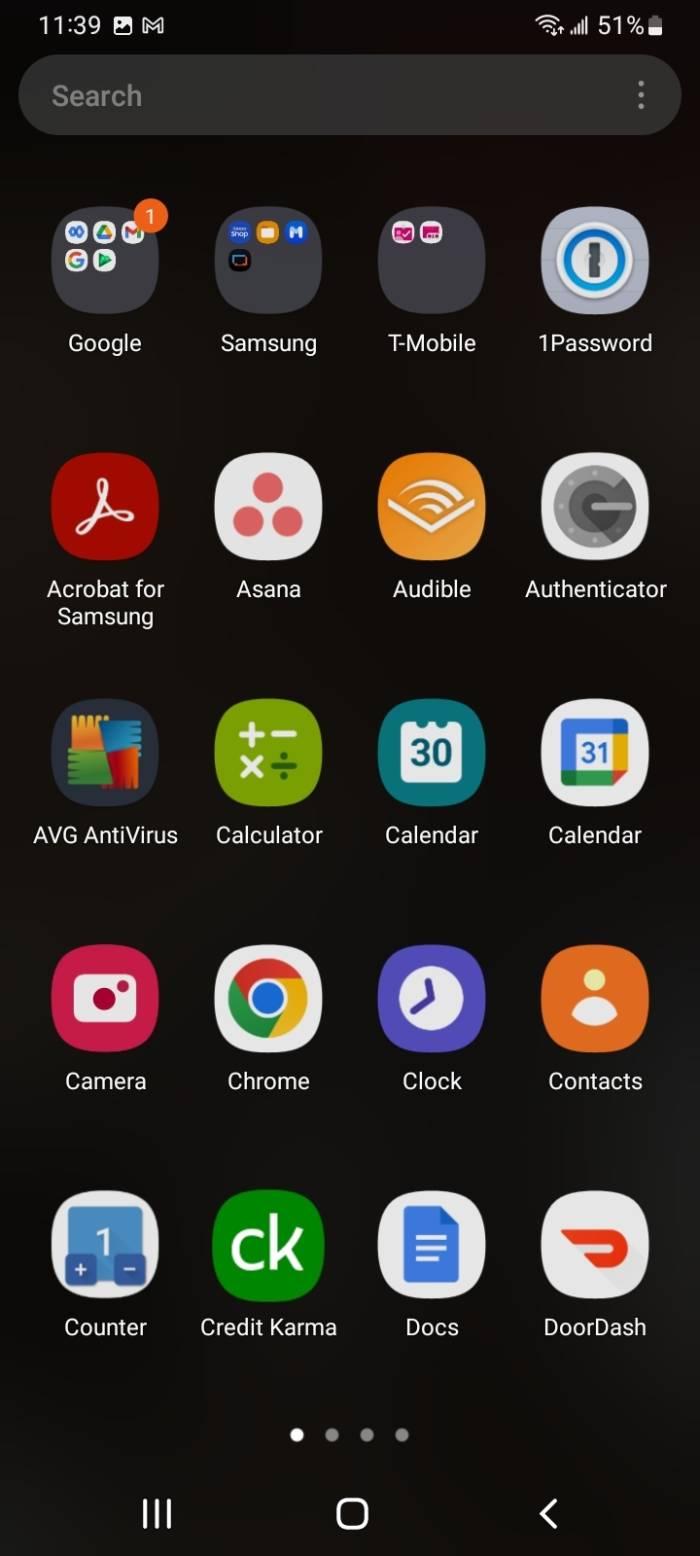
- Follow the on-screen prompts to finish.
You can also revoke app admin permissions in the security section in settings. In addition, you could put your Android in safe mode, which stops third-party apps from running in the background, and then reboot it. Doing this is simple: Just press the power button and hold it until you see the power off option. Then, select power off and hold it until you see the reboot in safe mode prompt.
Other common options include resetting your browser to factory settings, resetting your entire device to factory settings, or clearing out your downloads. Overall, your best bet is to take proactive measures before your phone can get infected, whether that’s installing anti-malware apps or using Android’s Google Play Protect function in your app store settings.
Popular anti-malware tools
- Norton 360 Antivirus: Norton’s antivirus tool has excellent malware detection features and offers excellent protection against threats. Norton offers other cybersecurity products as well if you want more features.
Get Norton 360 Antivirus | Read our Norton 360 Antivirus review
- McAfee+ Premium: McAfee’s been around for a long time, and its reputation is well deserved. It offers robust anti-malware software at several different pricing options.
- Bitdefender: Bitdefender offers cross-platform malware detection. And if you don’t want to pay for a plan, it offers some features for free.
- TotalAV: TotalAV is affordable and its malware detection software is easy to install and set up.
How to turn off Google Assistant on Google Maps and Android Auto
Another way Google can listen in on you is through Google Assistant on Google Maps and Android Auto. Turning off this function is simple. First, go to the settings app on your Android phone or tablet or say, “Hey Google, open Assistant settings.” From there, you can follow the prompts to turn off Google Assistant:
- On your Android phone or tablet, say "Hey Google, open Assistant settings" or open the Google Assistant app and say, “Assistant settings.”
- Under All settings, tap General. If you don’t find General, first tap View all settings or See all Assistant Settings.
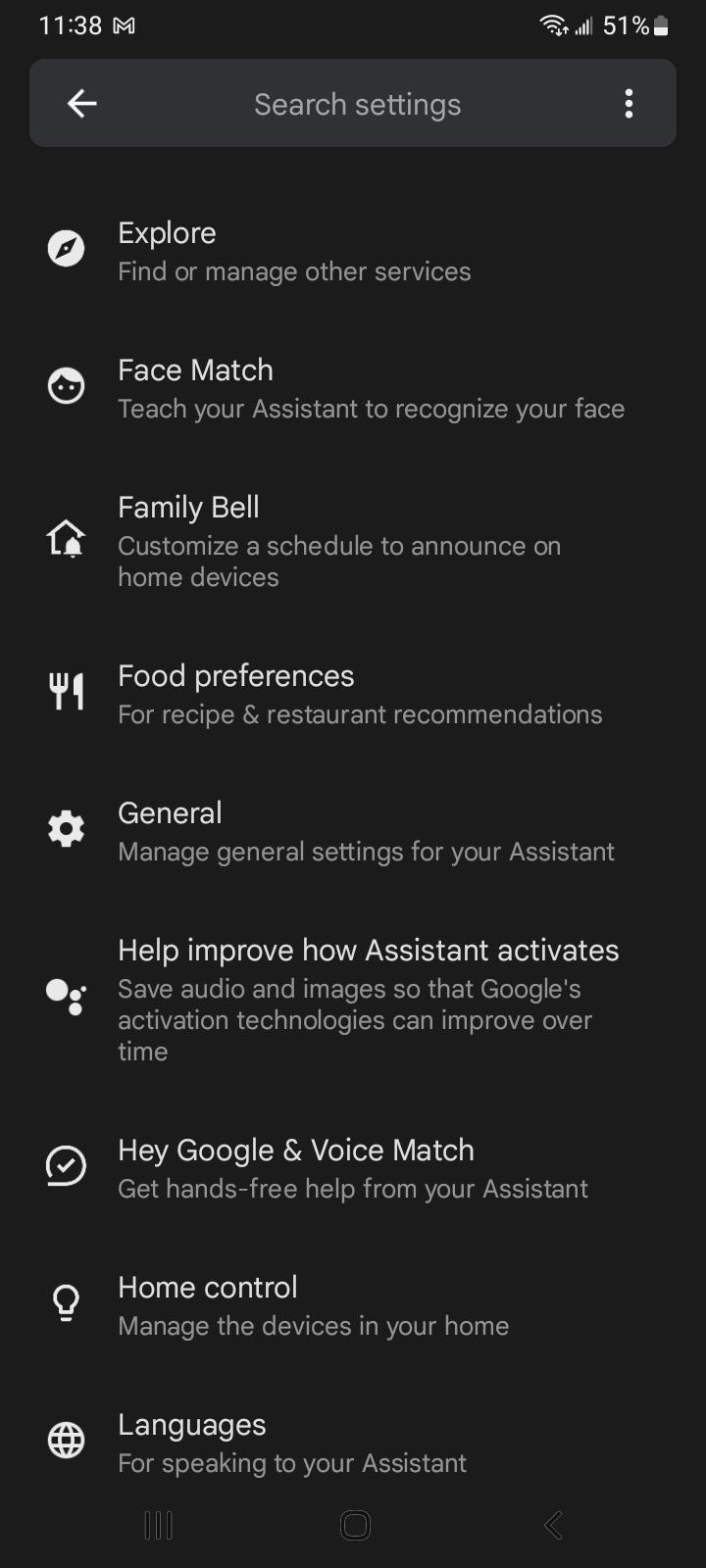
- Turn off Google Assistant.
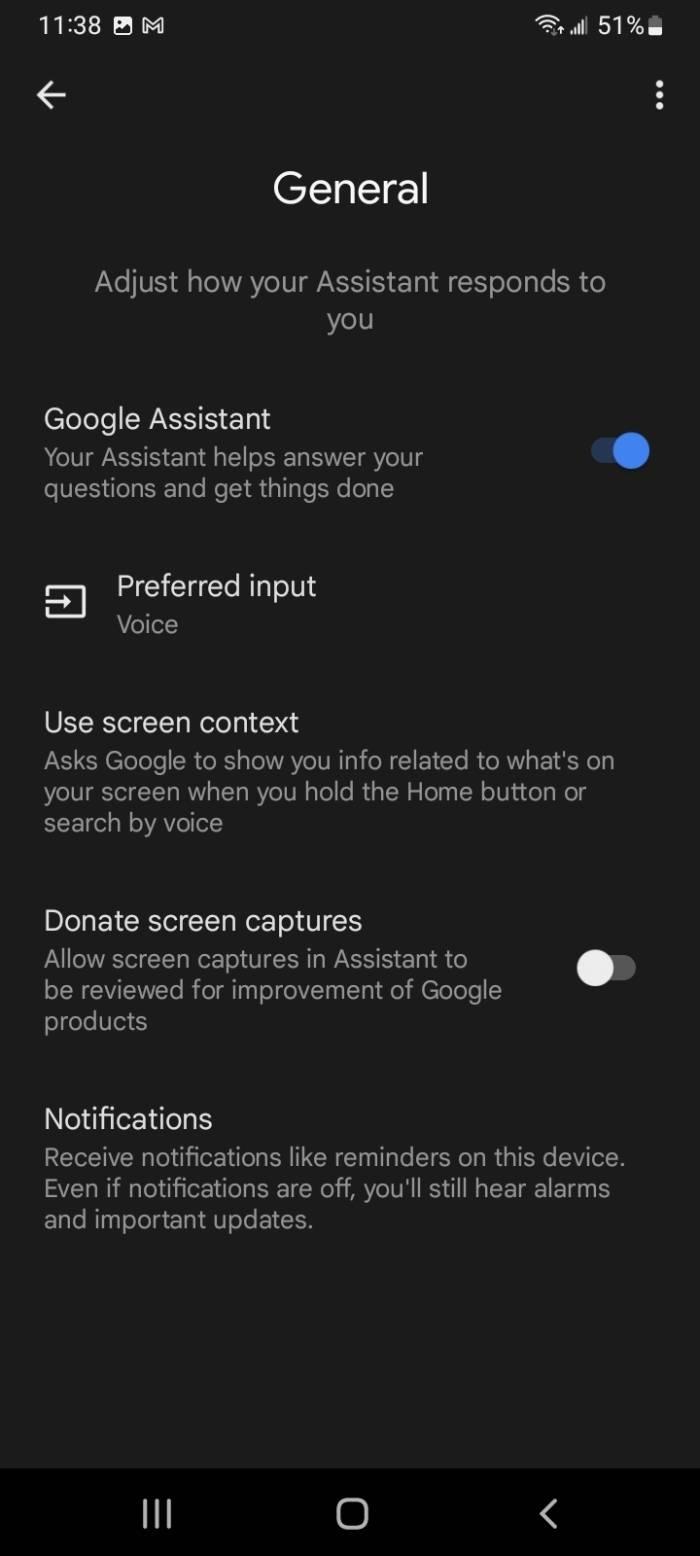
You can also access your Google Assistant settings via the Google Maps app. To do this, open the app, tap your profile picture or initials and then select Settings. Then, go to Navigation settings and Google Assistant settings.
Deleting your Google data is surprisingly easy. To start, go to the activity controls page on your Google account. Under each section, Web & App Activity, Location History, and YouTube History, you’ll see options for the various subgroups of activities that were saved, and then you can delete them individually or en masse. Google also provides you with the option to auto-delete your data on this page, which can help you stay ahead of third-party tracking.
How to stop your Apple iPhone from listening to you
The best way to keep your Apple iPhone, and other iOS devices, from listening to you is by turning off Siri.
1. Go to Settings and select Siri & Search.
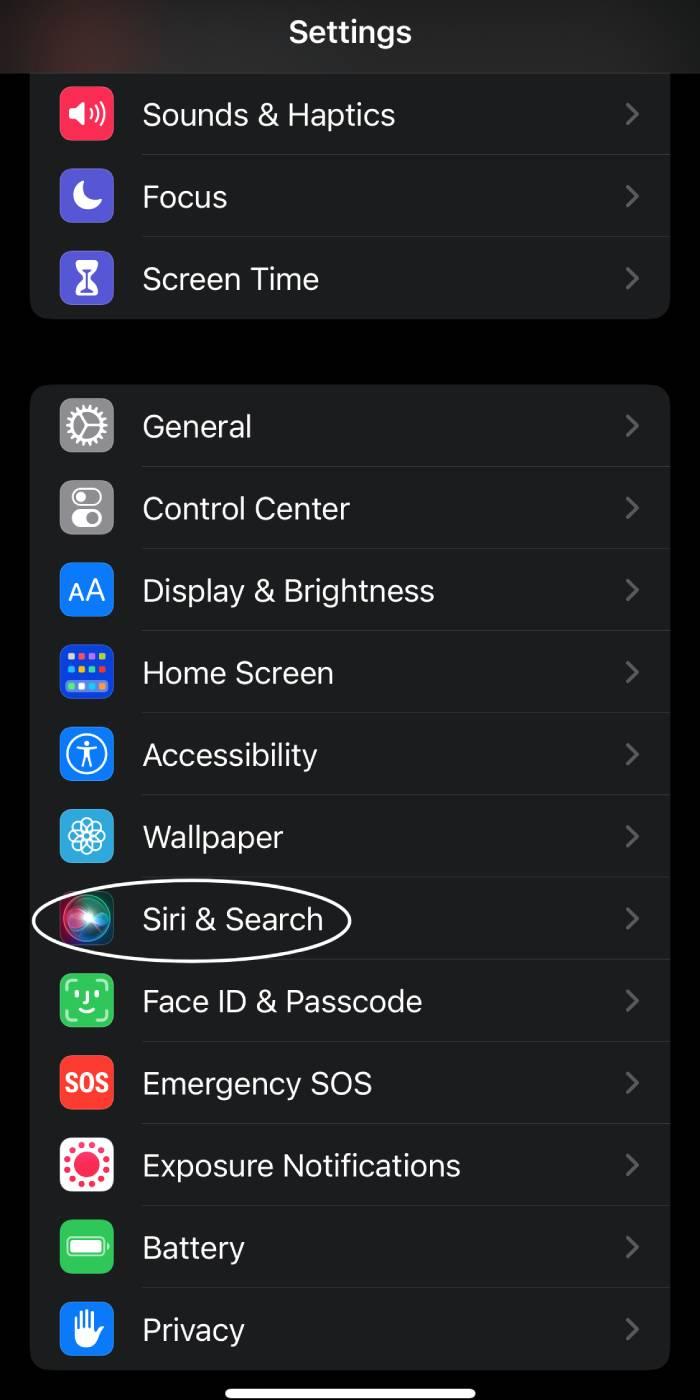
2. Turn off all of the following features:
- Listen for “Hey Siri”
- Press Side Button for Siri
- Allow Siri When Locked
3. Tap on Turn Off Siri in the pop-up.
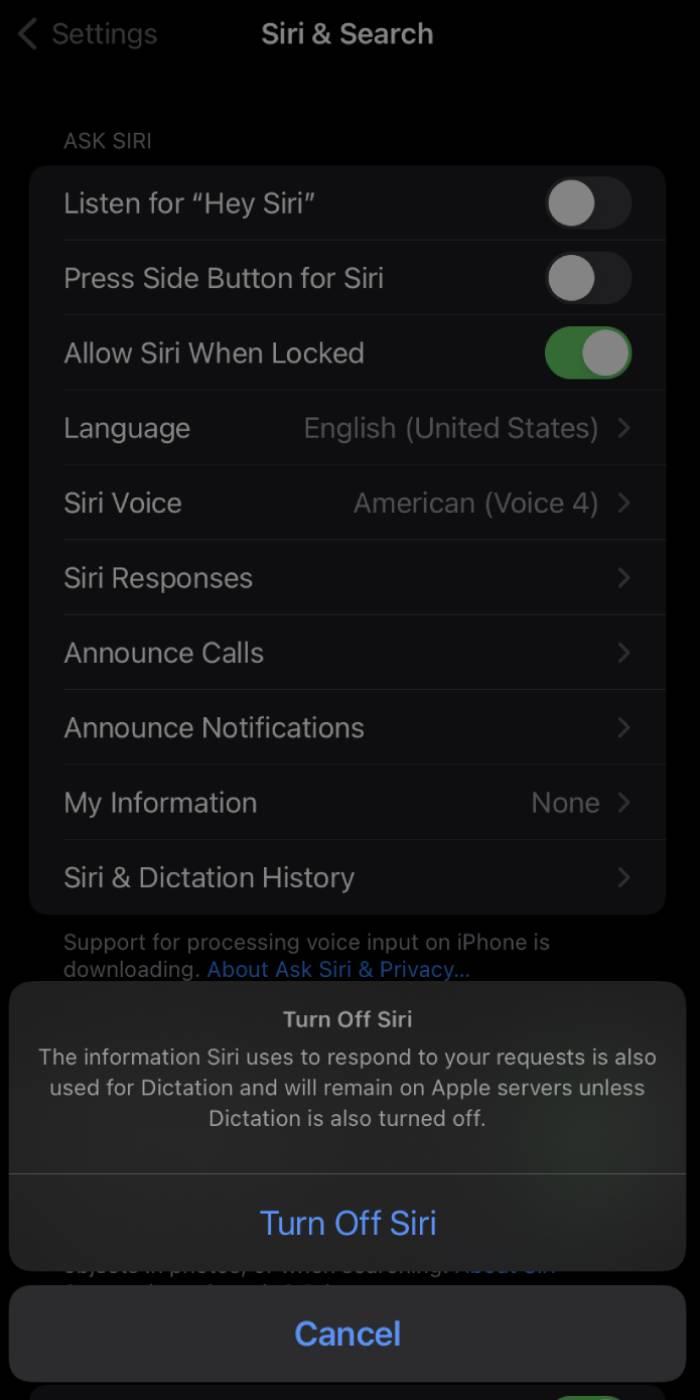
If you’re worried about iPhone malware, you can also restart your phone, clear your browsing data and history, or back up your iPhone and restore it to factory settings.
7 cell phone privacy tips
There are a lot of other steps you can take to protect your privacy while using a smartphone. The best way to avoid malware and unwanted monitoring of your activity is to take a proactive approach to your privacy. Here are a few helpful tips to help keep you secure.
- Only download verified apps: A verified third-party app has been reviewed to ensure it meets standard security and privacy requirements.
- Update your phone’s software: Keeping your phone’s software updated increases your chances that spyware and malware can’t infect your phone. Phone makers often issue patches that address security issues with each new software update.
- Delete unused apps: Not using that puzzle game app you downloaded a few years ago? Delete it. It’s best to keep possible sources for malware and monitoring to a minimum.
- Check app permissions: You can control what your app sees and hears. In your device’s settings, you should have the option to block certain apps from accessing your pictures, contacts, location, and microphone.
- Delete your voice request history: You can delete your voice request history and other voice data by deleting your call history or managing your history under the data and privacy section of your smartphone’s settings.
- Use a VPN: A virtual private network (VPN) is useful for blocking location tracking and other forms of data monitoring by keeping your connection to the internet secure and encrypted.
- Update your privacy settings: It’s always a good idea to check your device’s privacy settings to see which apps you’re giving permissions to. This can help you regain some control over your data sharing.
FAQs
Do phones listen to your conversations?
While your phone may not be listening to all of your conversations, it’s likely listening passively for wake words, as well as other keywords that could improve your user experience. Even though it’s rare, your phone could listen to and record entire conversations, which is why it’s best to take steps to protect your privacy in this area.
Is your phone always watching you?
Your phone may not be always watching you, but it could be — sometimes. Pay attention to what apps you’re giving camera access to and be wary of unverified third-party apps.
Which phone has the highest privacy?
A couple of phones are considered to have the highest privacy. While no device is truly immune to malware and unwanted data monitoring, the Blackphone PRIVY 2.0 and the Sirin Labs Finney U1 and Solarin models boast strong privacy.
Bottom line
Even before the internet and mobile phones were invented, privacy has always been a concern for the average consumer. Now, with our increasingly online world, privacy is more important than ever, though it’s rarely addressed by the leading smartphone manufacturers and technology providers. That’s why it falls to the consumer to take an active role in protecting their own data and privacy.
But just because protecting your privacy is harder now than it used to be doesn’t mean it’s impossible or not worth attempting. You can take an active role in how your data is recorded and stored. When you do this, you become an empowered consumer, and you’re no longer just a data point for big tech. Take that step today. Check out our Best VPNs article to learn more.
-
High-quality VPN offering safety and speed
-
Loads of servers for multiple connection options
-
Works with popular streaming services, including Netflix
-
Too many confusing plans
